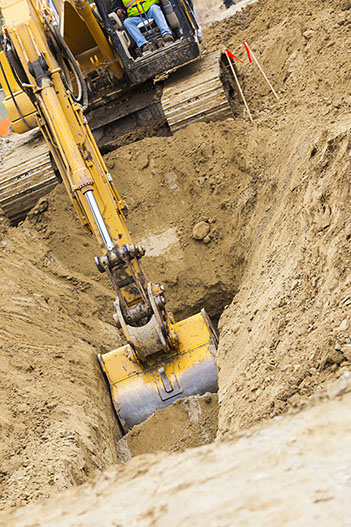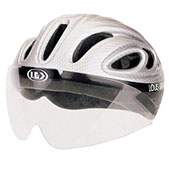SciGen Teacher Dashboard
Unit T3
Claims & Evidence
 Scene: Safety at the Skateboard Park
Scene: Safety at the Skateboard Park
Duration: Approximately 50 minutes
In this Science Scene, a dialogue to read aloud as a class, students meet a character making a claim about the relationship between steep ramps at a skateboard park and accidents. The characters consider whether or not they can test the claim.
Students may have heard the term “claim” in different contexts. Some may associate it with advertisements that they have heard on TV. The passage focuses on determining whether a claim is properly supported by evidence. The students in the passage argue about what kind of evidence might be needed to prove that skateboarding ramps are dangerous
LEARNING OBJECTIVES
Students closely examine the details of the narrative and consider the validity of a claim and the need to test a claim.
Students are introduced to the Focus Words, scientific language used throughout this unit.
Students consider the perspectives of the characters through related questions.
Teacher Tips
- Think ahead about how you will assign the three roles (Gabriella, Jamal, and Hector) to read the script aloud as a class, perhaps in groups or by having volunteers read in front of the class. Note that students often willingly take on roles regardless of the gender of the characters.
- While it is possible for the students to read the PDF of the script online, we suggest printing the script for the students so they can hold it in their hands and mark it as they read. Consider scaffolding the lesson for English language learners: you could let them preview the script before the lesson or read the dialogue silently once and ask questions to a partner.
- Prior to the reading the script, explain to students that they will encounter new vocabulary terms and ideas that may not be familiar. Reassure them that this lack of familiarity is okay. The reading is meant to introduce the ideas, not explain them completely.
- Review the focus words of the week. The focus word chart linked on the unit overview page should be used as a resource for students to review definitions and sample sentences.
- This activity is intended only as an introduction to the concepts.
- When roles are assigned, it is recommended that the teacher read the part of the narrator.
Teacher Tune-ups
Teaching Notes
ACTIVITY OVERVIEW
- Set the context (10 minutes)
- Engage with the script (20 minutes)
- Identify the characters' perspectives (10 minutes)
- Discussion (10 minutes)
Set the context (10 minutes)
During a conversation, has someone made a claim that you are not sure is true? What did you do?
Some sports or activities are much more dangerous than other, correct? How do you know? Can you support a claim like this with evidence?


:
Companies make claims all the time about their products. Spokespersons or actors say things like, “Our diet will help you lose weight.” However, it is important not to make a claim unless there is enough evidence to support the claim. In science, we do experiments and collect data. We can then look at our results and interpret them. We might look for patterns in our data to see if we can support a certain claim.
Engage with the script (20 minutes)
The Script:
Setting: Gabriella, Jamal, and Hector were cutting through the park on their way home from school. In the middle of the park was a construction site where a large hole had been dug in the ground. There were piles of dirt everywhere and a sign that read: SKATEBOARD PARK COMING SOON!
Jamal: I wish they would hurry up with the ramps. My cousin gave me his skateboard, and I’m dying to try it on some serious ramps. I hope they’re really steep so I can do tricks.
Gabriella: Not me! I just learned how to skateboard. A steep ramp would make me nervous.
Jamal: No way! The steeper the ramp, the faster you go! Fast is just more fun, it’s not more dangerous. Actually, if I try to do my tricks on a ramp that’s not steep enough, that’s when I fall and get hurt.
Hector thought about this and wondered if Jamal had any evidence to support his claim.
Hector: Last summer I went down a steep ramp and I fell and broke my arm. I was going way too fast.
Jamal: Maybe you’re just a bad skateboarder. You can’t say that steep ramps are bad just because one person got hurt.
Gabriella: The idea of a really steep ramp makes me nervous, but Jamal has a point. Has anyone actually tested to see if steeper ramps cause more accidents?
Hector: Why do you need a test? I know that if I go down a steep ramp, by the end, I feel like I’m going very fast. The faster I go, the harder I’m going to crash into something if I fall at the end.
Jamal: Hector, you’re not getting my point. You can’t interpret more speed to mean more danger. For someone like me who does tricks, slow messes me up and can cause me to get hurt.
Gabriella agreed with Hector. But she also thought it was plausible that steeper ramps just felt more dangerous but didn’t cause more accidents.
Gabriella: I could believe that going faster at the end would make you crash harder. But maybe Jamal is right. Maybe steep ramps aren’t really that dangerous. I think that people who build these parks should test different ramps to see how often kids get hurt on them. The results might tell you if the ramp was dangerous.
Hector: I guess that would make sense. If you saw a pattern in the results where more people got hurt on steeper ramps then you would know they were a bad idea.
Gabriella: Maybe there should be all different kinds of ramps so kids can choose. If you’re good and want to do tricks like Jamal, you could choose a steep ramp. If you’re like me, you can choose one that’s not steep.
Hector: But last summer I chose a steep ramp. I didn’t know I would break my arm. I didn’t get to play baseball or go swimming for my whole summer vacation. I was miserable. Companies that build ramps should have to test how dangerous they are. A little steep might be okay. But if it’s too steep, you don’t realize how fast you’ll go and how hard you’ll hit when you fall.
Jamal: Skateboarding is just like any other sport. You might get hurt, but that’s the chance you take. I’m with Gabby. Let people make their own choices.
Hector disagreed. He thought the evidence would show that steep ramps were dangerous. He decided he’d look into the evidence before he continued his argument with Jamal.
Analysis of character perspectives (10 minutes)
Use the comprehension questions about the reading as a quick assessment of student comprehension.
:
- (D) They should put in large ramps and small ramps so people can choose.
- (C) He only falls when the ramp isn’t steep enough to do tricks.
- (A) Results from a study that show a pattern where people get hurt on steep ramps.
1. What does Gabriella think the skateboard park builder should do so that everyone is happy?
- They should not allow bad skateboarders into the park.
- They should make steep ramps, but put warning signs on them.
- They should survey skateboarders to see what they think.
- They should put in large ramps and small ramps so that people can choose.
2. Why does Jamal claim that steep ramps are not dangerous?
- He thinks Hector is a bad skateboarder.
- He read a skateboarding study.
- He only falls when the ramp is not steep enough to do tricks.
- He has never seen anyone fall on a steep ramp.
3. What kind of evidence does Hector think will support his claim?
- Results from a study that show a pattern of people getting hurt on steep ramps.
- Data that show that skateboarding is more dangerous than biking.
- Stories from people falling on steep ramps.
- Skateboarding down steep ramps himself to see what happens.
Discussion (10 minutes)
The “Discussion” questions are designed to get students to begin to think about the importance of having evidence to support claims and how that evidence could be collected. The discussion questions can be done in pairs or as a full class. The questions are also a way for students to practice the focus words.
When agreeing with one of the claims, encourage students to explain why and provide evidence.
Have students think about what kind of results would be helpful as evidence to test Hector’s claim.
 Do you agree with Jamal or Hector’s claim? Why?
Do you agree with Jamal or Hector’s claim? Why?- How do you think you could design an experiment that might test Hector’s claim that steep ramps are dangerous?
- Why is it important to have evidence to support a claim?
BETA Version - Please send comments and corrections to info@serpinstitute.org